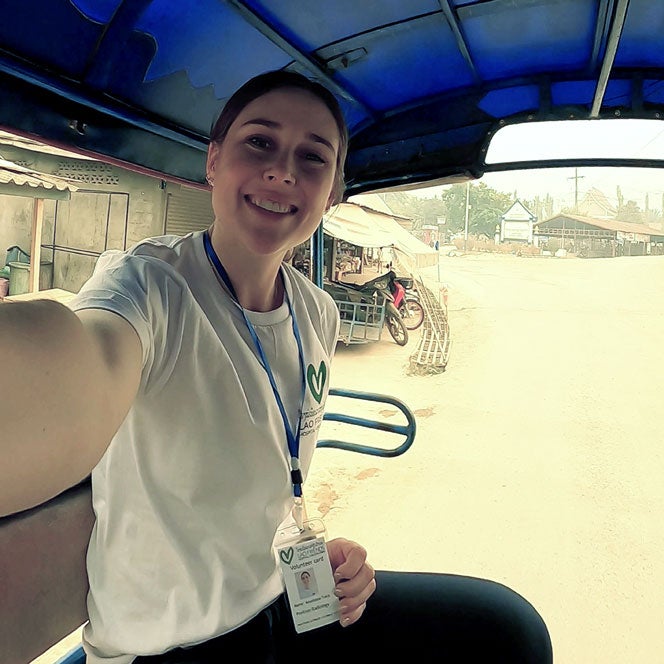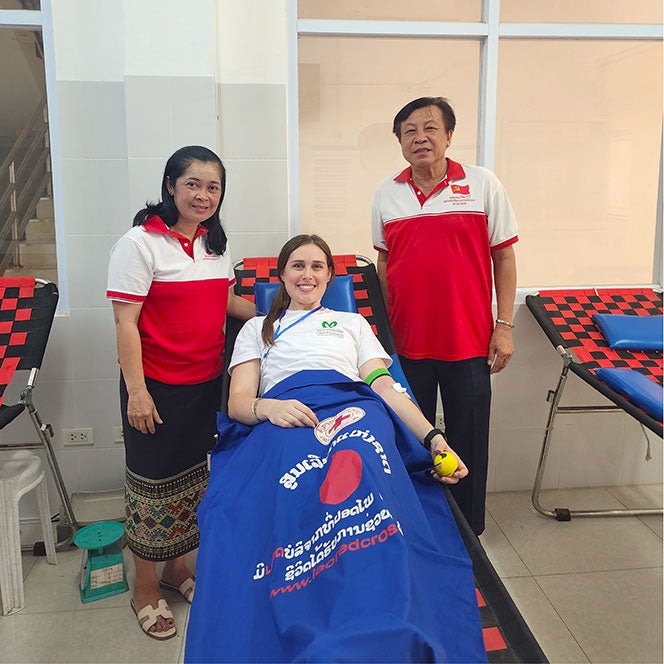
Anastasia Tracy, director of the Diagnostic Medical Sonography program in the Department of Radiologic Sciences, travelled to Luang Prabang in Laos to lecture and help medical faculty gain hands on experience operating X-ray, ultrasound and CT equipment for two weeks with the non-profit Rad-Aid
Tracy has been looking forward to volunteering at the Lao Friends Hospital for Children for a long time. Initially, she thought that the barriers to participate in this excursion were somewhat extreme, but facing these challenges made Tracy incredibly understanding and grateful for all her years of experience and education.
Tracy had to be creative to work around the language barrier, proclaiming that a lot of the communication between her and the hospital staff was “charade like,” using body language mostly to transmit her thoughts effectively. For medical terminology, a lot of the Latin roots were used to communicate the words she was trying to convey. Gestural communication worked up to a point until another linguistic roadblock appeared – the instructions for a machine manual were not written in English nor in Laotian, but Vietnamese. Luckily, the medical personnel knew numerous languages and were able to aid in the transcription of this document to keep this tricky game of communication working.

Operating with the Laotian medical staff rapidly changed Tracy’s perspective on the way medical procedures were conducted: “I thought going into this trip with my American medical experience and knowledge would greatly benefit me, but the people of Laos and their ability to deliver medical aid with limited resources surprised and astonished me.” Laos doesn’t have all the medical equipment that is found in most American hospitals and clinics. Regardless of that, the Laotian medical professionals found a way to conduct the procedure in a satisfactory and ethical manner that was at the core of Tracy’s surprise and astonishment.
“Volunteering and dedicating your time to organizations like Rad-Aid is very beneficial and effective for the people and medical professionals in Loas,” Tracy said. “Most people in Luang Prabang have a salary of $500 a year and typically do not have many educational options due to a lack of schools. If you have the time and resources to be able to go to these different sectors of the world and administer hands-on training like I did, then you should volunteer and go.”
Tracy’s recommendation to students that are passionate about this type of work is to do the grassroots labor, such as connecting with people in the program already, giving lectures or doing work in different sectors that are more accessible and just gaining valuable experience in order to be ready to take upon this medical journey.